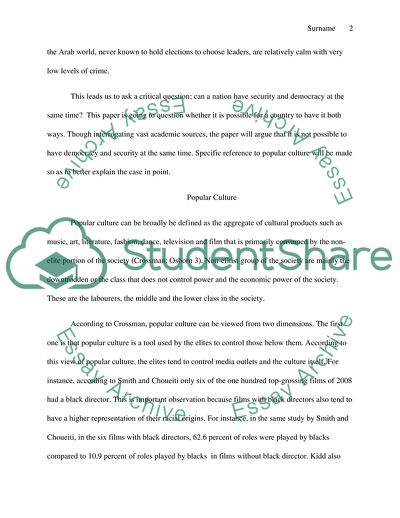Cite this document
(Can Security and Democracy Co-Exist Coursework Example | Topics and Well Written Essays - 4500 words - 1, n.d.)
Can Security and Democracy Co-Exist Coursework Example | Topics and Well Written Essays - 4500 words - 1. https://studentshare.org/politics/1847520-security-and-democracy-can-you-have-both-hows-does-popular-culture-and-star-wars-tell-us-that-you-cannot
Can Security and Democracy Co-Exist Coursework Example | Topics and Well Written Essays - 4500 words - 1. https://studentshare.org/politics/1847520-security-and-democracy-can-you-have-both-hows-does-popular-culture-and-star-wars-tell-us-that-you-cannot
(Can Security and Democracy Co-Exist Coursework Example | Topics and Well Written Essays - 4500 Words - 1)
Can Security and Democracy Co-Exist Coursework Example | Topics and Well Written Essays - 4500 Words - 1. https://studentshare.org/politics/1847520-security-and-democracy-can-you-have-both-hows-does-popular-culture-and-star-wars-tell-us-that-you-cannot.
Can Security and Democracy Co-Exist Coursework Example | Topics and Well Written Essays - 4500 Words - 1. https://studentshare.org/politics/1847520-security-and-democracy-can-you-have-both-hows-does-popular-culture-and-star-wars-tell-us-that-you-cannot.
“Can Security and Democracy Co-Exist Coursework Example | Topics and Well Written Essays - 4500 Words - 1”. https://studentshare.org/politics/1847520-security-and-democracy-can-you-have-both-hows-does-popular-culture-and-star-wars-tell-us-that-you-cannot.


